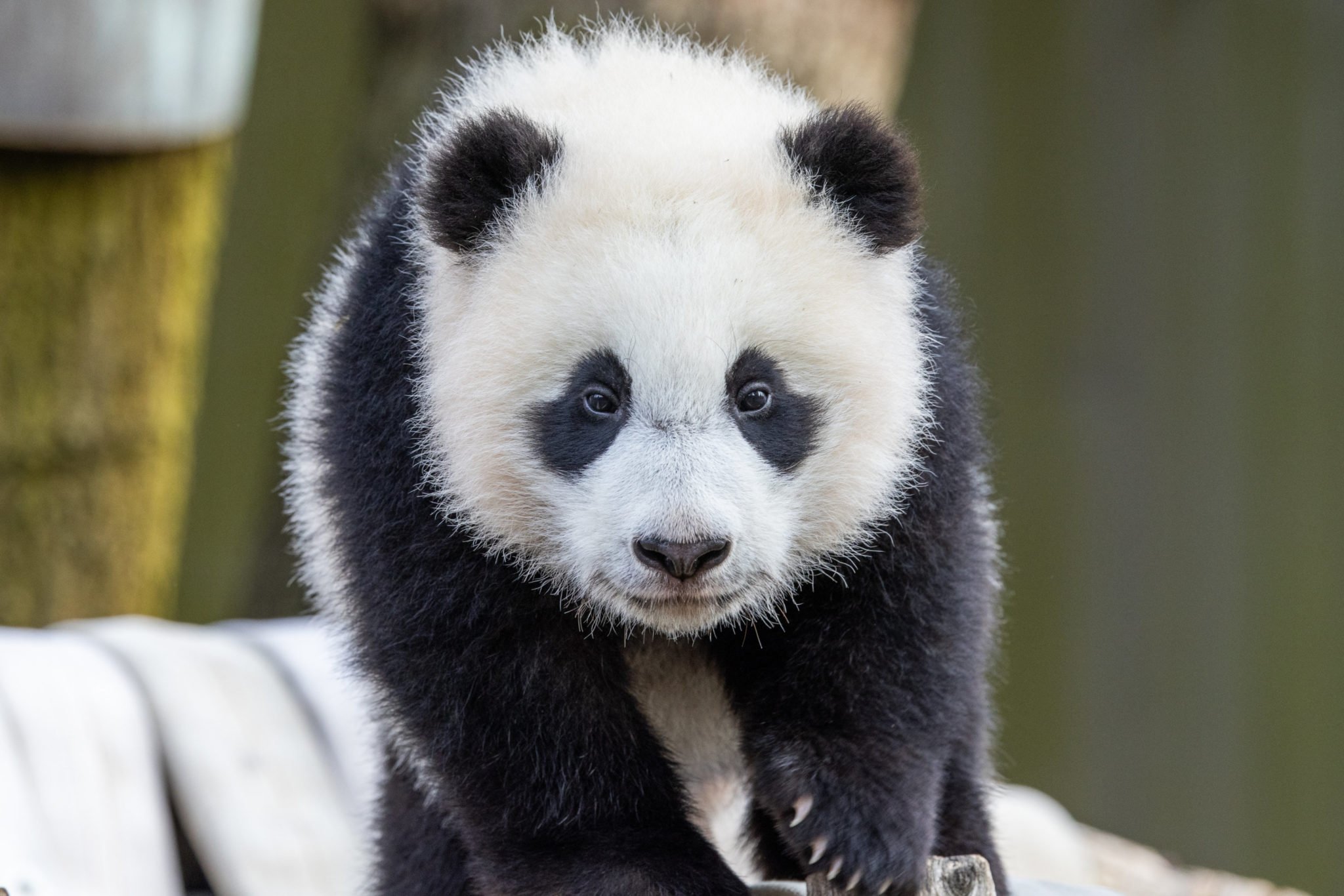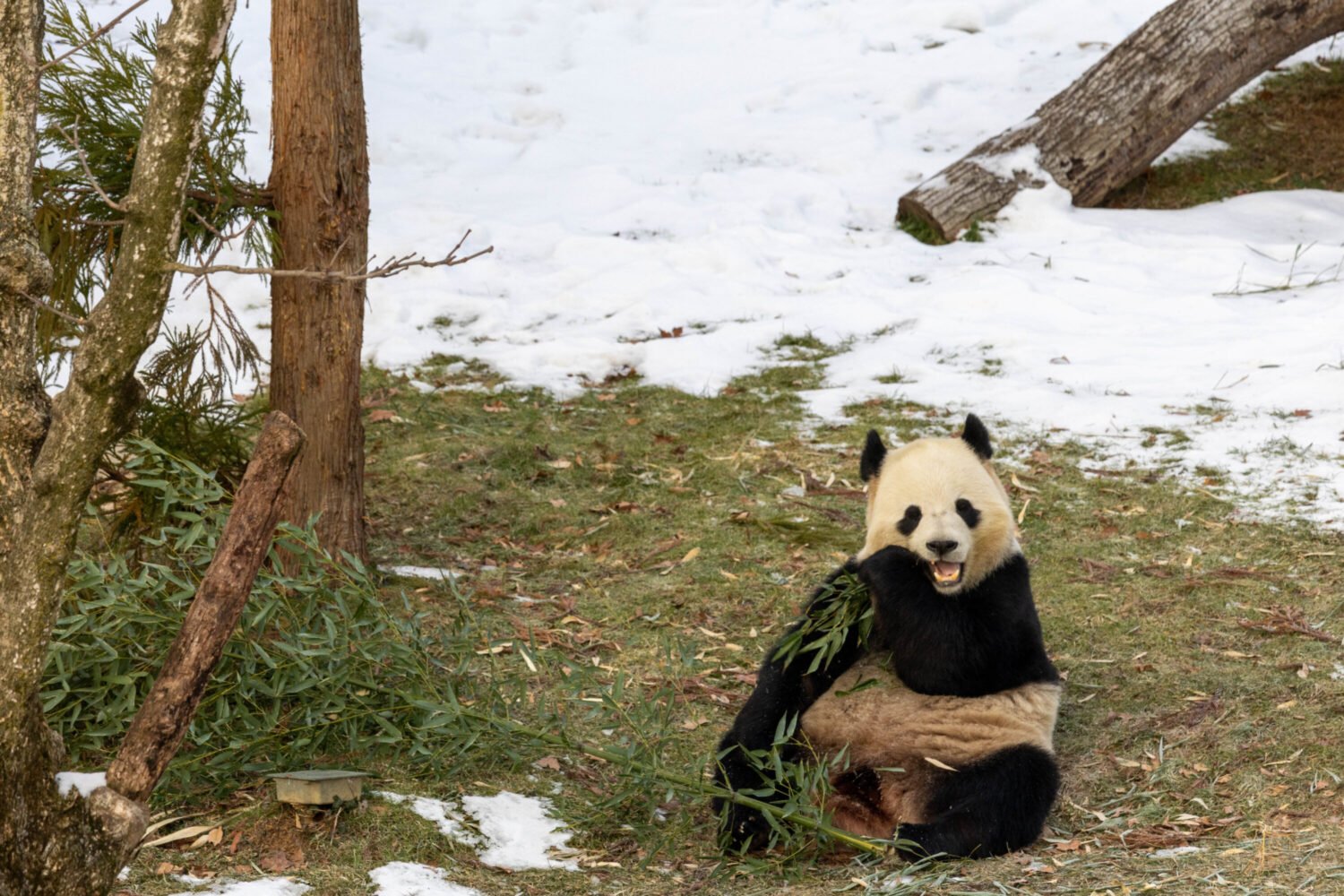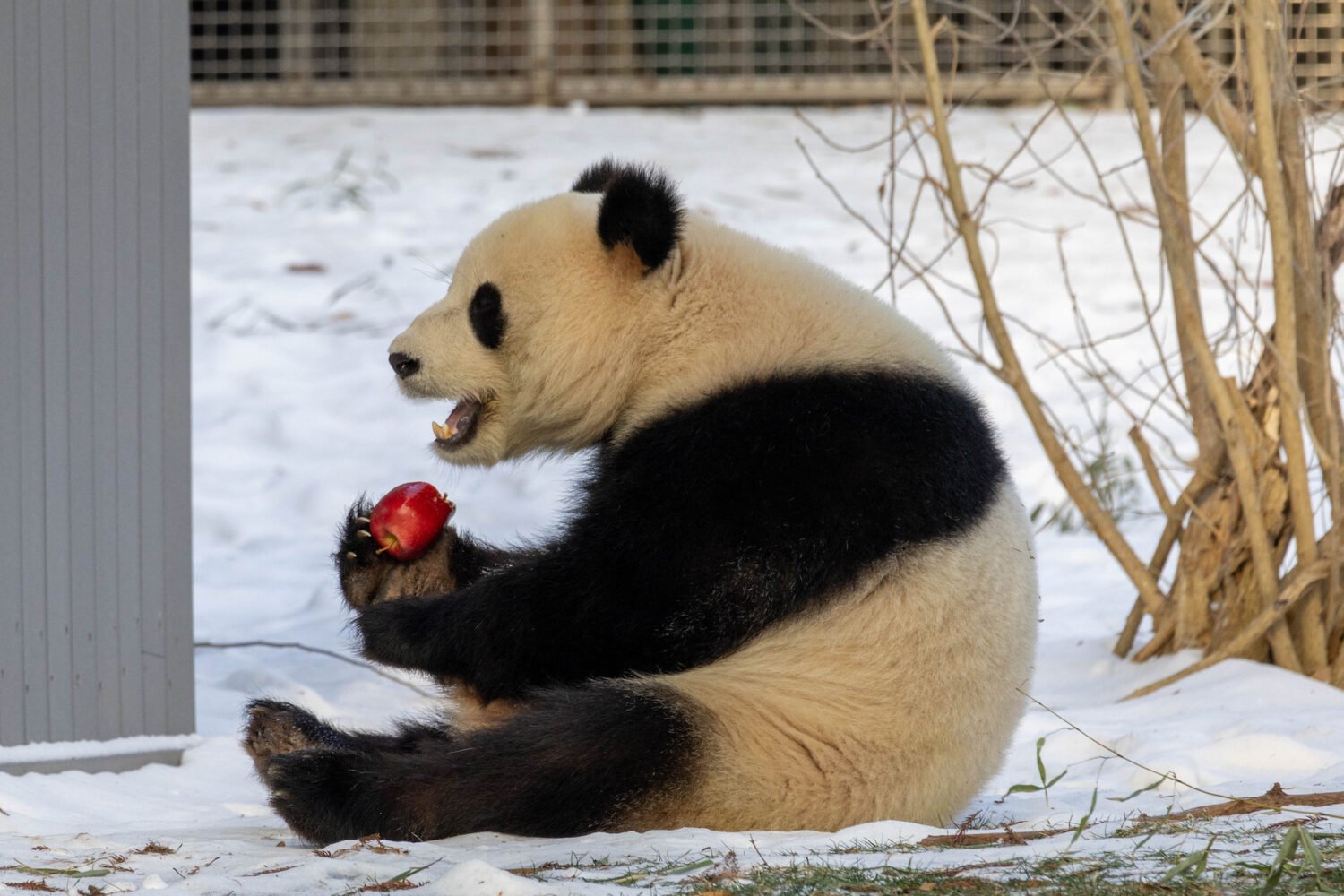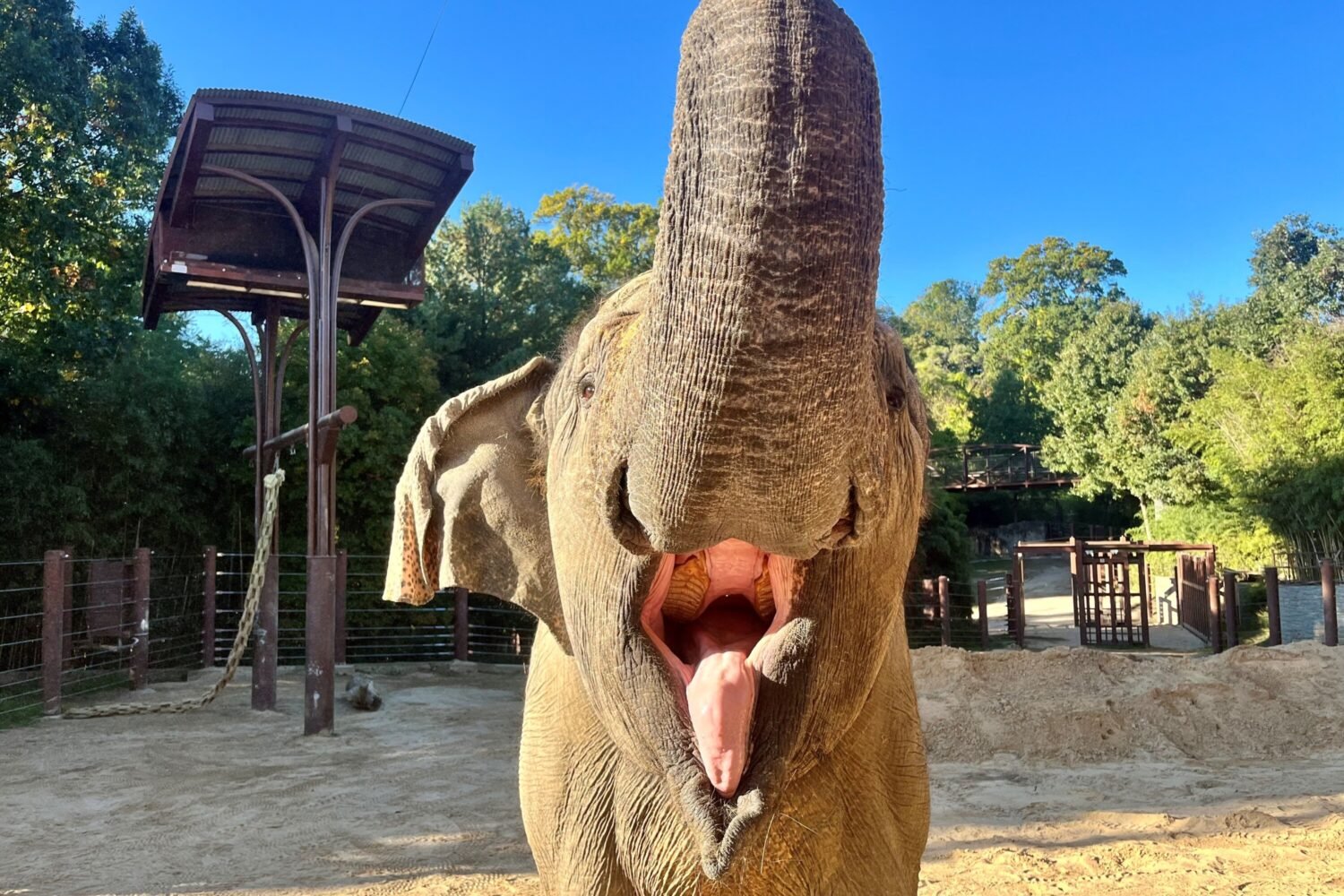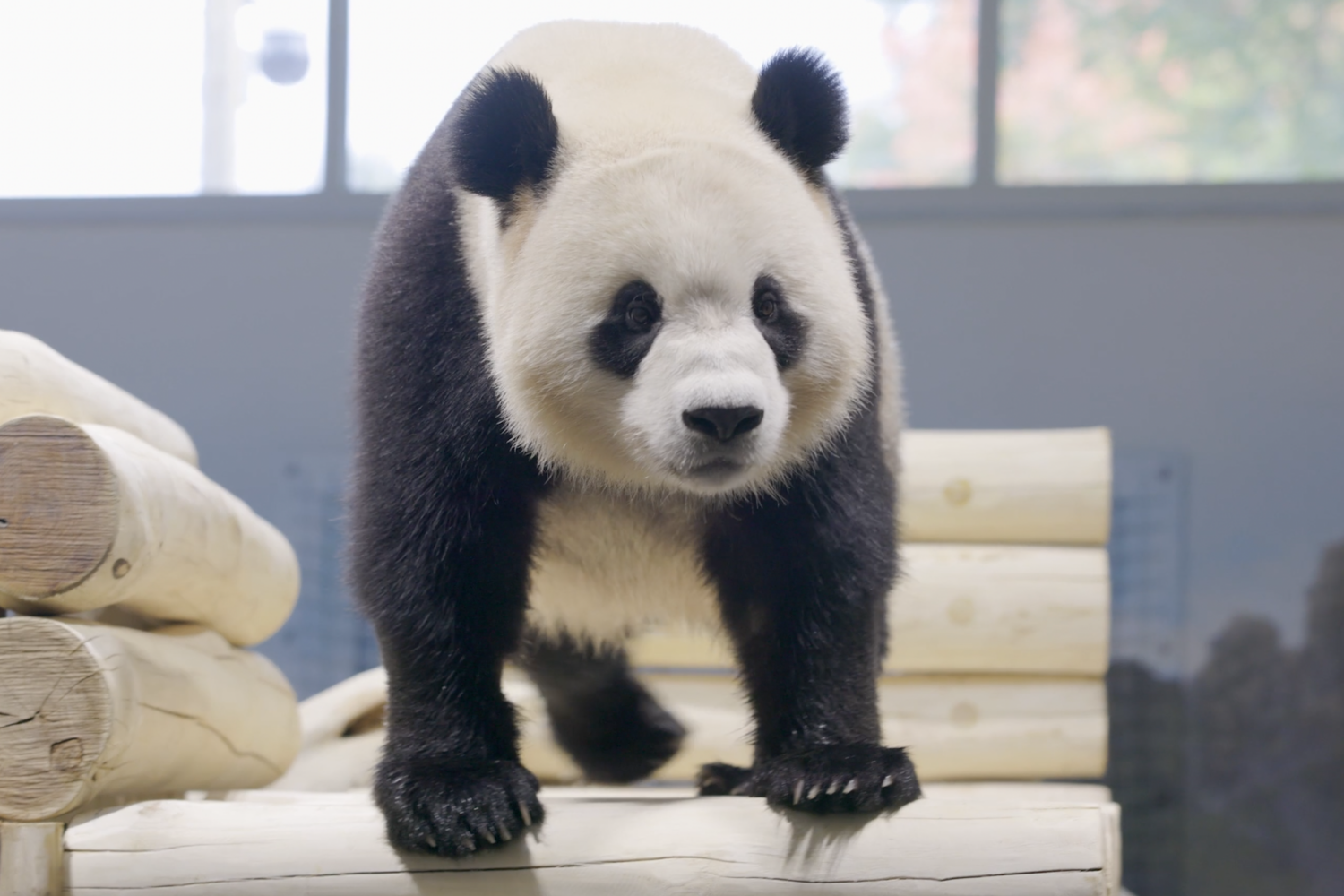After a series of pandemic closures, the National Zoo will once again welcome visitors starting on May 21. But if humans are still adjusting to life within six feet of each other, how will the animals react to the influx of people?
Spoiler alert: they may fare better than us bipeds. According to senior curator Bryan Amaral, the animals are likely to be unfazed by the return of human fans. Although the facility has been closed to visitors for almost six months, the animals have been interacting with Zoo staff and watching maintenance teams move through their homes. At the moment, the animals are paying more attention to humans because their presence often means a feeding session or fun activity, says Amaral. Once the animals see that visitors aren’t interacting with them directly, their interest in humans will likely ebb.
Just in case, Zoo staff will observe animals for any changes in behavior. If they see a critter struggling with their new audience, trainers may bring them in earlier or provide additional enrichment activities as a distraction. Of course, biology also plays a role: Prey animals such as the antelopes may be jumpier than their predator counterparts. Others may delight in the return of guests. Lucy the orangutan, who is known for peeking out her round window to interact with passing guests, is likely to return to her post, says Amaral. Some of the baby animals born in the Zoo during the pandemic—including a litter of cheetah cubs, a March-born lesser kudu, and giant panda Xiao Qi Ji—will take cues from their exhibit mates and parents.
“It’s going to be an adjustment for all of us,” Amaral says. “It doesn’t matter what kind of animal—whether we have on Smithsonian t-shirts or tiger stripes.”
But the biggest change of all? Expect more wildlife outside of the enclosures. Given the lack of activity at the Zoo, Amaral says they’ve seen more deer and foxes making their own visits.
“It’s almost like when you see in movies, there was sort of an apocalypse, and there’s deer running down the street in New York,” Amaral says. “They’ve got the whole place to themselves and they exercise their authority.”

